the environment
When we discover the beauty of our world, we want to take care of it. At Banyan Group, we seek to protect biodiversity, preserve water sources, and keep waste out of our precious ecosystems. We embed sustainability at every decision point, and make it easy for our guests to travel responsibly.
Take
CLIMATE ACTION
Climate change impacts every aspect of our destinations, from weather, to food and water security, to the prosperity of local communities. So, we strive to lead our industry towards a net-zero future, where everyone can thrive.
Our Target
Reduce emissions
by 2030
Our Approach
To align ourselves with the Science Based Targets initiative (SBTi),
we updated our Greenhouse Gas (GHG) baseline from 2019 to 2022,
and expanded our carbon emissions measurements beyond hotels
owned and managed by us to include non-hotel operations. We also
included Scope 3 emissions.
Our Progress

Targets set
Based on our baseline emissions of 272 kt CO2e, we have set targets to reduce our emissions by 42% by 2030, to contribute to efforts to meet the 1.5 C° threshold established by the Paris Agreement.Emission reduction projects identified
We have identified several key emission reduction projects for our hotels in the Maldives, Bintan, Bangkok and Lăng Cô.
Emission intensity dropped by 22%
In 2023, our emission intensity per occupied room dropped by 22%, from 204 kg CO2e to 159 kg CO2e.3% reduction in total emissions
We also saw a 3% reduction in total emissions from our property sales business compared with 2022.
Case Studies
Come Out In The Wash
Laundry services are typically a major contributor to water consumption in the hospitality industry. To minimise water-use, we comissioned continuous batch washers at all Laguna resorts and hotels.
In addition to saving water, batch washers also reduce greenhouse gas emissions. When all batch washers are installed, we expect to see emissions reductions of 5,000 tCO2e per year.
Green Construction
Our Laguna Beachside project in Phuket will use rebar made from
97% recycled content instead of conventional steel. This will reduce construction carbon emissions by 9%.
Clean Energy
Solar panels have been installed at the Laguna Lakeside project
in Phuket, which will reduce electricity consumption by 18%.
Powering Sustainability
In March 2023, Angsana Velavaru launched the first phase of its solar project, as part of our commitment to a lower-carbon future.
On-site solar panels produce approximately 1300 kilowatts of energy each day, reducing the property’s carbon emissions by 366 tonnes. By avoiding 94,670 litres of diesel, the solar panels saved US$118,000 in 2023 alone. Gas emissions also dropped by 6% over the year.
Phase two commences in April 2024. Additional panels will provide a daily output of 980 kWh, which are projected to reduce emissions by a further 360 tonnes annually.
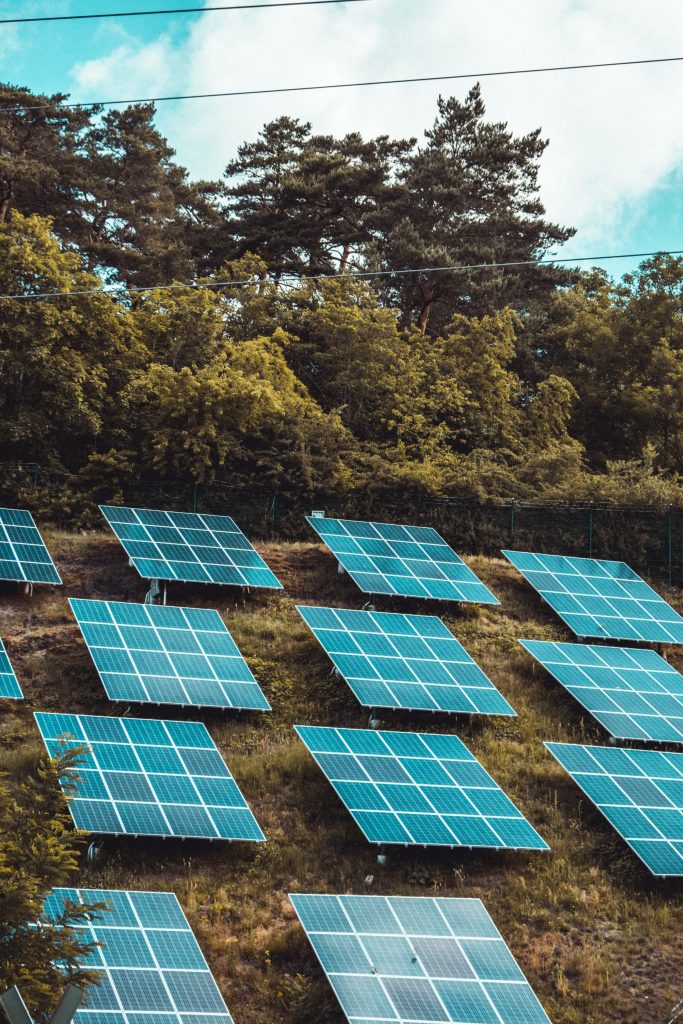
For 2024 and beyond, we will prioritise carbon-reduction projects identified in 2023. We will introduce these projects to additional properties, and continue to explore the use of low-emissions construction materials.
Reduce
Waste
In the communities where we operate, managing waste is a crucial challenge, often worsened by tourists, who typically generate twice as much waste as locals. With global waste projected to increase by 70% by 2050, adopting a circular economy and addressing food loss and waste (FLW) is an urgent challenge.
So, we compost, recycle and reuse as much as we can, to keep our wonderful destinations looking wonderful. We also work closely with our suppliers to reduce packaging, and support community waste management initiatives.
Our Target
Divert
of waste from landfill by 2030
Our Progress
23% of total waste diverted
In 2023, 23% of our total waste was diverted from landfill via recycling or repurposing activities.Our Approach
Banyan Group’s waste reduction efforts are focused on the 5Rs – reduce, refuse, reuse, recycle and remove.
We donate food waste to local farms for use as feed or compost, and partner with Scholars of Sustenance, an NGO that rescues and serves surplus food to communities across Thailand and Indonesia.
On the procurement side, we partner with suppliers to reduce waste in production and packaging, and avoid food loss during transportation. We also involve local residents in community clean-ups to foster a sense of stewardship. Finally, we create awareness among our guests, encouraging them to support sustainable tourism and adopt responsible lifestyles once they return home.
We monitor waste and track our progress using World Wildlife Fund (WWF) and Greenview (2021) methodologies.
WASTE MANAGEMENT PROCESS
All our properties are required to adhere to our stringent waste management guidelines. Associates can now access these guidelines via a training module on our Global Learning Management System.
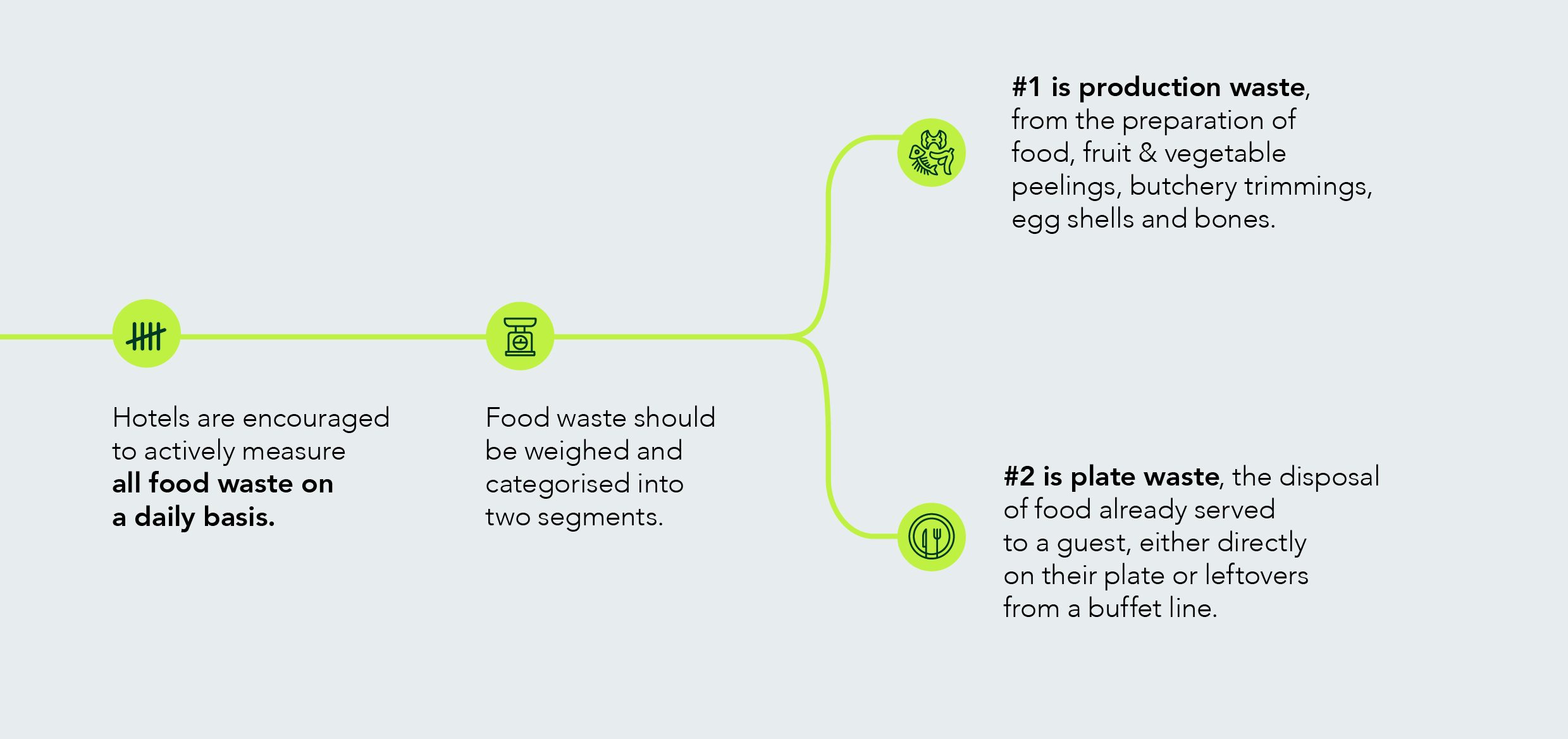
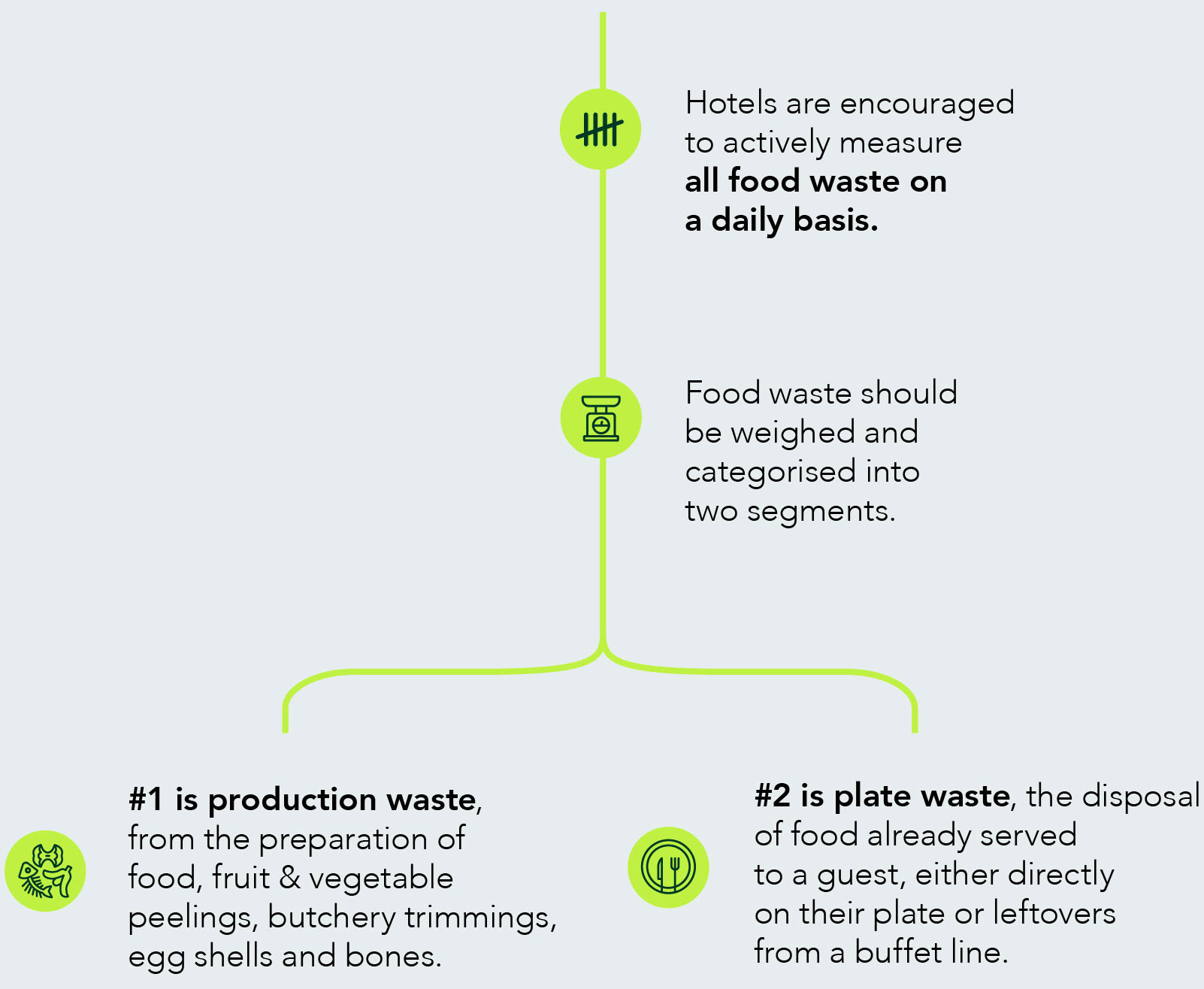
Using this measurement data allows hotels to identify the source of their food waste and take steps to reduce food waste by adjusting purchasing specifications, revising preparation procedures, managing production quantities or changing less-popular items that then generate waste.
Case Studies
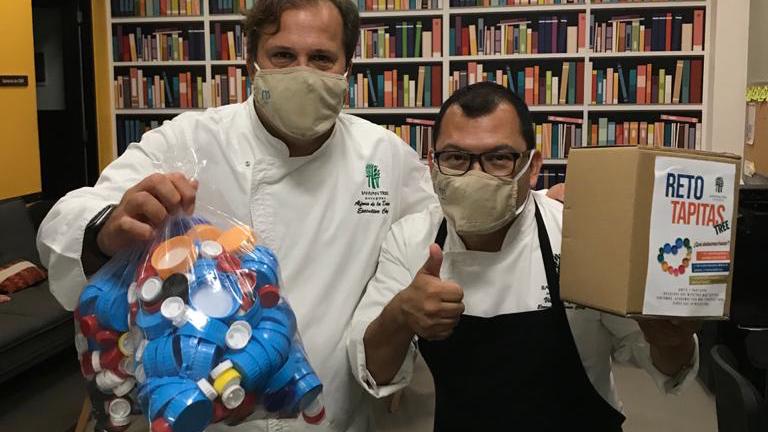
Saying no to plastic
Banyan Tree Nanjing Garden Expo launched a new initiative
to replace plastic bottles with recyclable glass alternatives. This resulted in a reduction of 43,737 plastic bottles at the property.
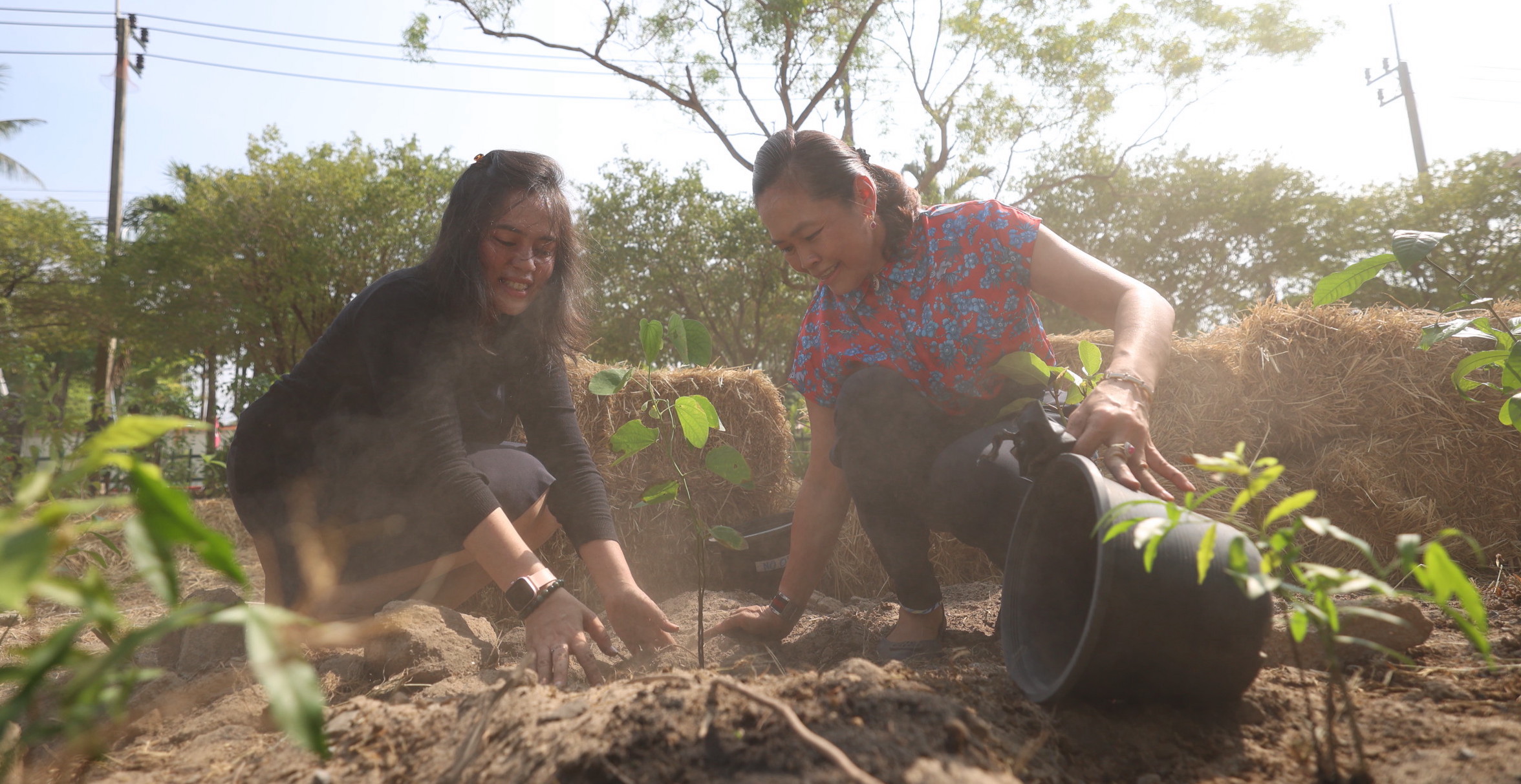
Green waste composting
We’ve installed on-site composting facilities at Laguna Phuket Central Landscape, to turn green waste into nutrient-rich organic compost. Instead of removing this waste for off-site processing, we use hot composting, a process of layering green waste to naturally decompose with the help of the warm local climate. The material is returned to the resort to top up landscape soil.
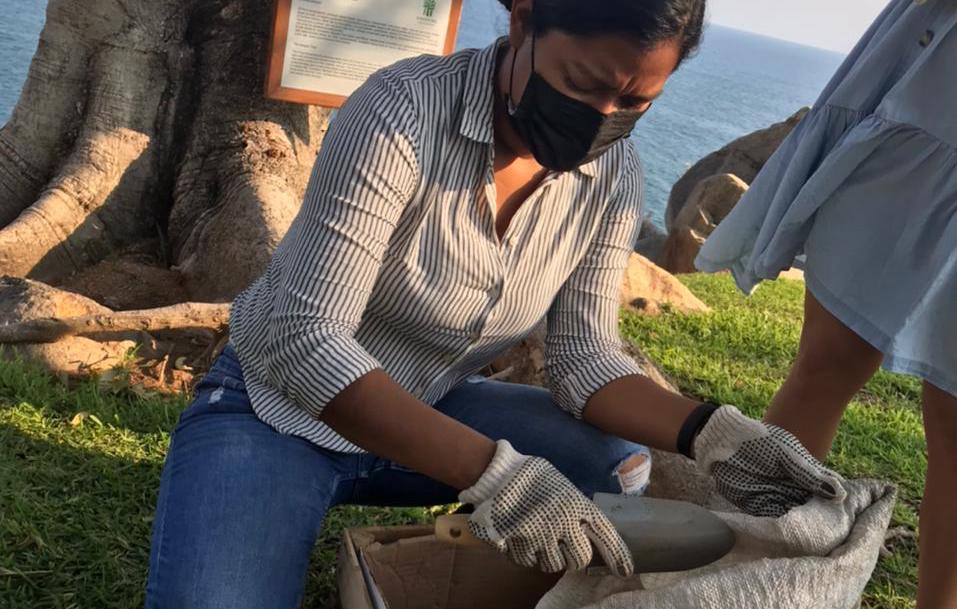
Fertilising with food waste
Angsana Velavaru’s food compost machine has revolutionised sustainability efforts, converting food waste into a valuable resource. In 2023, 117,162 kilograms of food waste was converted into 34,413 kilograms of compost. The compost is used to enrich our gardens with nutrient-rich fertiliser, cultivating lush greenery around our resort.
Our Food & Beverage, Stewards, and Engineering teams ensure smooth operations, meticulously documenting the process. By recording weights before and after composting, we strengthen accountability and optimise our processes, to ensure we can continue to contribute to a greener, healthier planet for generations to come.
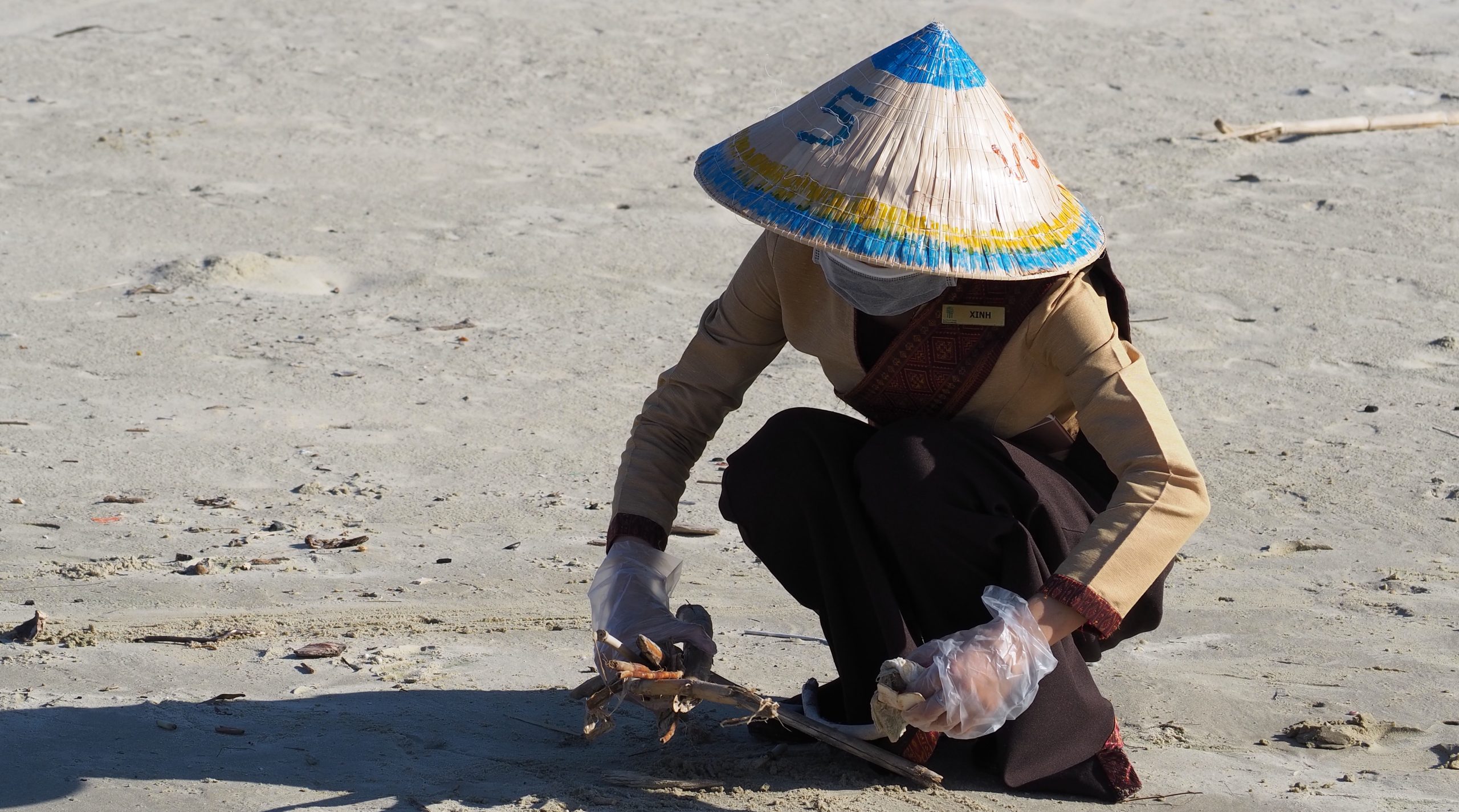
Trash to tote bags
At Banyan Tree Krabi, we collaborate with local vendor From the Sea Krabi to provide hotel guests upcycled tote bags made from trash collected from nearby beaches.In 2023 we purchased 210 bags, helping to divert waste from beaches while creating a source of income for local artisans.
Reducing single-use water bottles
More water bottling plants will be installed in Banyan Group hotels, to avoid single-use plastic and glass water bottles. In addition to reducing plastic, this effort will reduce transportation emissions.
Educating our people
To ensure that all staff have a comprehensive understanding of our mission to reduce waste, the Group’s waste management guidelines and Learning Management System (LMS) training will be translated into more local languages.
Recovering organic waste
Angsana Laguna Phuket will begin a trial for food digesters and organic composters in 2024.
Conserve
Water
Irresponsible tourism can deplete water resources. So, we are committed to using water efficiently, and capturing and recycling all we can. This is how we safeguard this precious resource for our local communities.
Our Target
of water from recycled or alternative sources by 2030
Our Progress
2.3% of water saved
through implementation of recapture and water savings initiatives.Nearly 8% improvement
in water efficiency achieved on a per occupied room (POR) basis. Total water consumption increased by only 31%, despite overall occupied room nights for the group increasing by 49% compared to 2022.Our Approach
We take a multi-faceted approach to water conservation, which includes repairing infrastructure, monitoring leaks, boosting storage capacity and reusing water.
To make sure that local communities enjoy equitable catchment use and access, we apply inclusive water governance with provenance.
Case Studies
Improving water safety in Chinese schools
Since 2021, we’ve partnered with the China Environmental Protection Fund (CEPF) to ensure that students and teachers at the Central Primary School in Yangshuo County have access to safe drinking water.
As of the end of 2023, we had provided 55,454 litres of water to the school. Our efforts prevented the use of 110,908 plastic bottles and reduced greenhouse gas emissions by 12,206 kg.
This initiative was expanded to include the Dadi Central Ethnic Primary School in Leishan County. Five water dispensers were installed to provide safe drinking water to more than 500 students and teachers.
At the end of the year, these dispensers provided 12,485 litres of water, prevented 16,675 plastic bottles from being used, and reduced greenhouse gas emissions by 803 kg.
By 2024, Banyan Group Hotels aim to source at least 5% of water from recycled or alternative means. Strategies include:
Harvesting rainwater
Optimising catchment areas for irrigation
Treating wastewater for irrigation use
Increasing grey-water storage
Exploring further water-efficiency measures
Assessing water catchments on and around our properties, to understand our impacts
Increasing groundwater retention through resort design
Creating greater awareness among guests, and encouraging them to conserve water, especially in areas at high risk of scarcity.
Respect
Biodiversity
The way we build and operate our properties impacts our world, for better or worse. So, we do all we can to make our impact a positive one – for the wildlife and natural wonders of the destinations we love.
Our Target
Seafood from sustainably certified sources by 2030
cage-free eggs by 2025
Our Progress
143 certified sources
Seafood sourced from 143 certified-sustainable sources.
5% sustainable seafood
5% of seafood purchases from certified sustainable sources.
8% cage-free eggs
8% of our global supply chain sources cage-free eggs.
Our Approach
Our supply chain is our greatest opportunity to improve biodiversity. Sustainable seafood harvesting preserves marine ecosystems, protects endangered species and supports ethical labour practices. Cage-free egg systems reduce habitat destruction from concentrated waste, promote genetic diversity in chicken populations, and foster more natural farm environments.
Every aspect of our operations is also tailored to reduce our impact on the environment, from the way we design our properties to how we build and run them. We employ risk assessments to minimise adverse impacts on sensitive habitats and areas of high biodiversity.
Restoration and research projects play an important role. We have established conservation labs in the Maldives and Indonesia, and partnered with institutions and experts. We actively promote awareness of biodiversity issues, appreciation of nature and responsible travel among our guests and stakeholders.
Case Studies
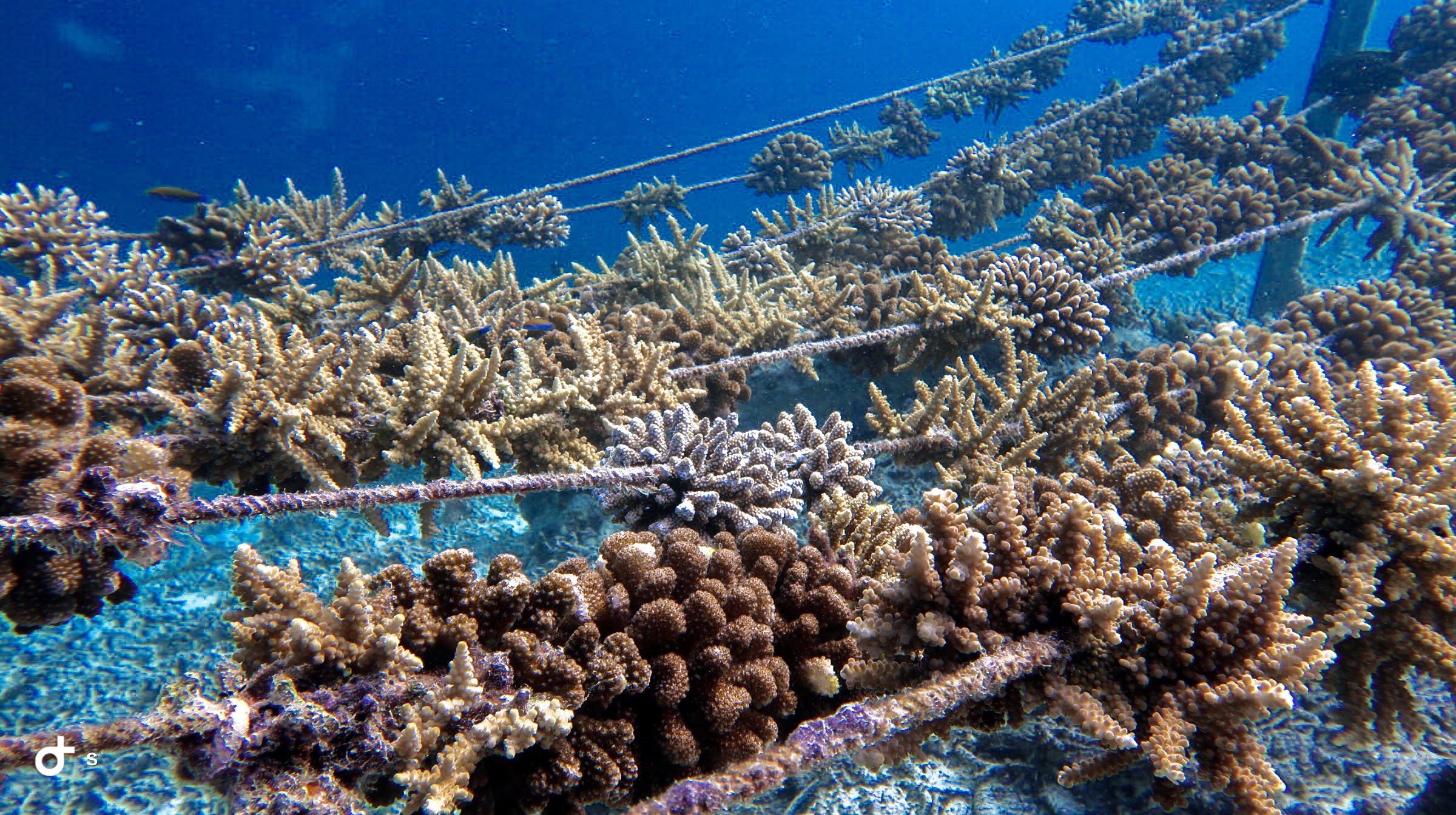
Over the past three decades, we have rolled out various initiatives, including caring for the reefs in the Maldives, conserving turtles in Bintan and restoring local firefly populations in Bali.
We work closely with Humane Society International to advance animal welfare, and with the United Nations Global Compact (UNGC) to better align ourselves with the UN Sustainable Development Goals.
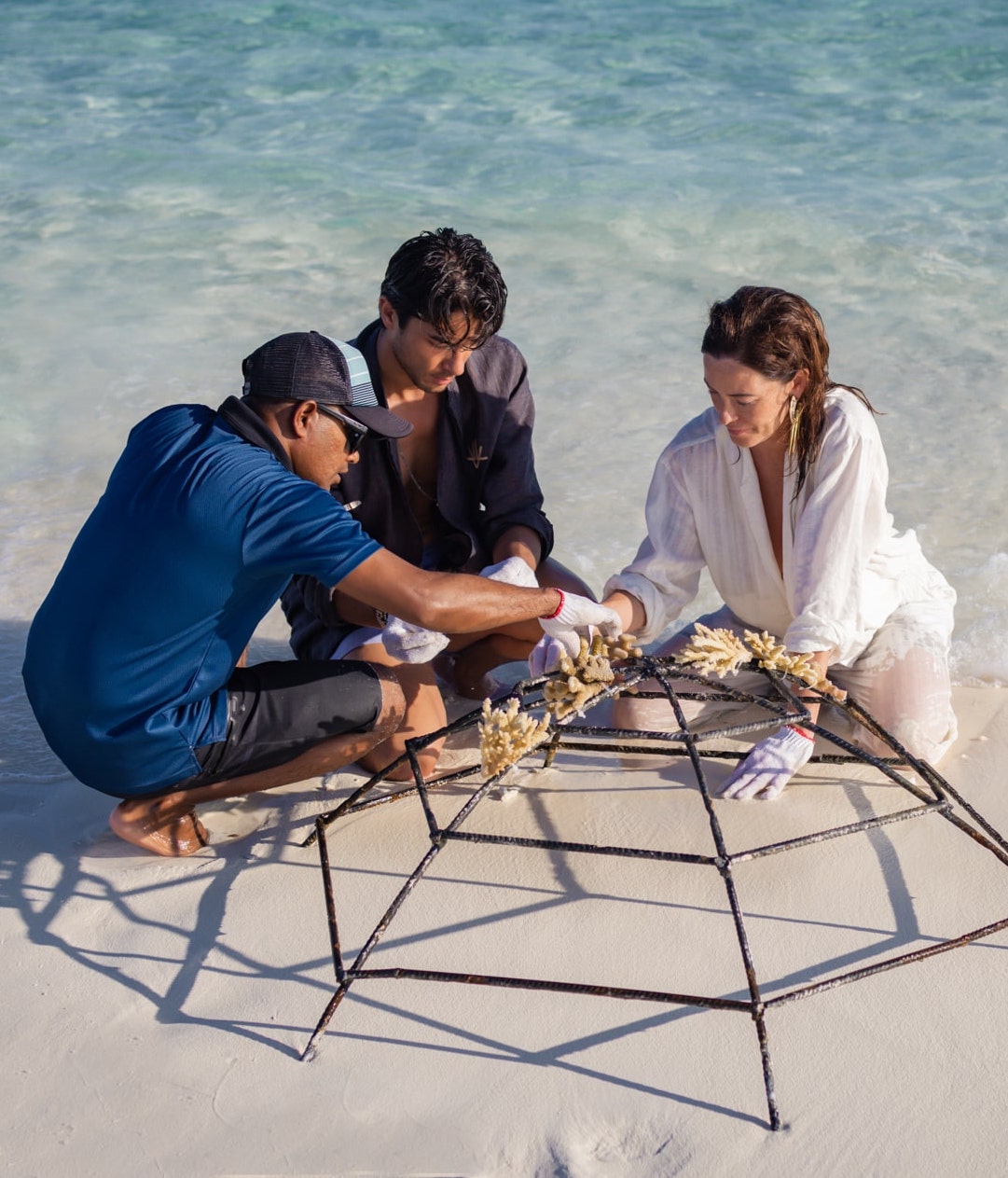
Planting coral in the Maldives
Coral reefs provide vital habitat for marine life. In 2016 a bleaching event damaged reefs across the globe, putting the biodiversity of marine ecosystems at risk.
Our coral rope nurseries in the Maldives assist the natural reef recovery process. By transplanting coral using cement
or metal frames, we mirror the natural reproductive strategy of ‘fragmentation’.
So far, we’ve attached over 8,000 coral fragments across 8 nurseries, and seen significant growth rates. Once ready, coral will be reattached to the natural reef, promoting overall reef recovery.
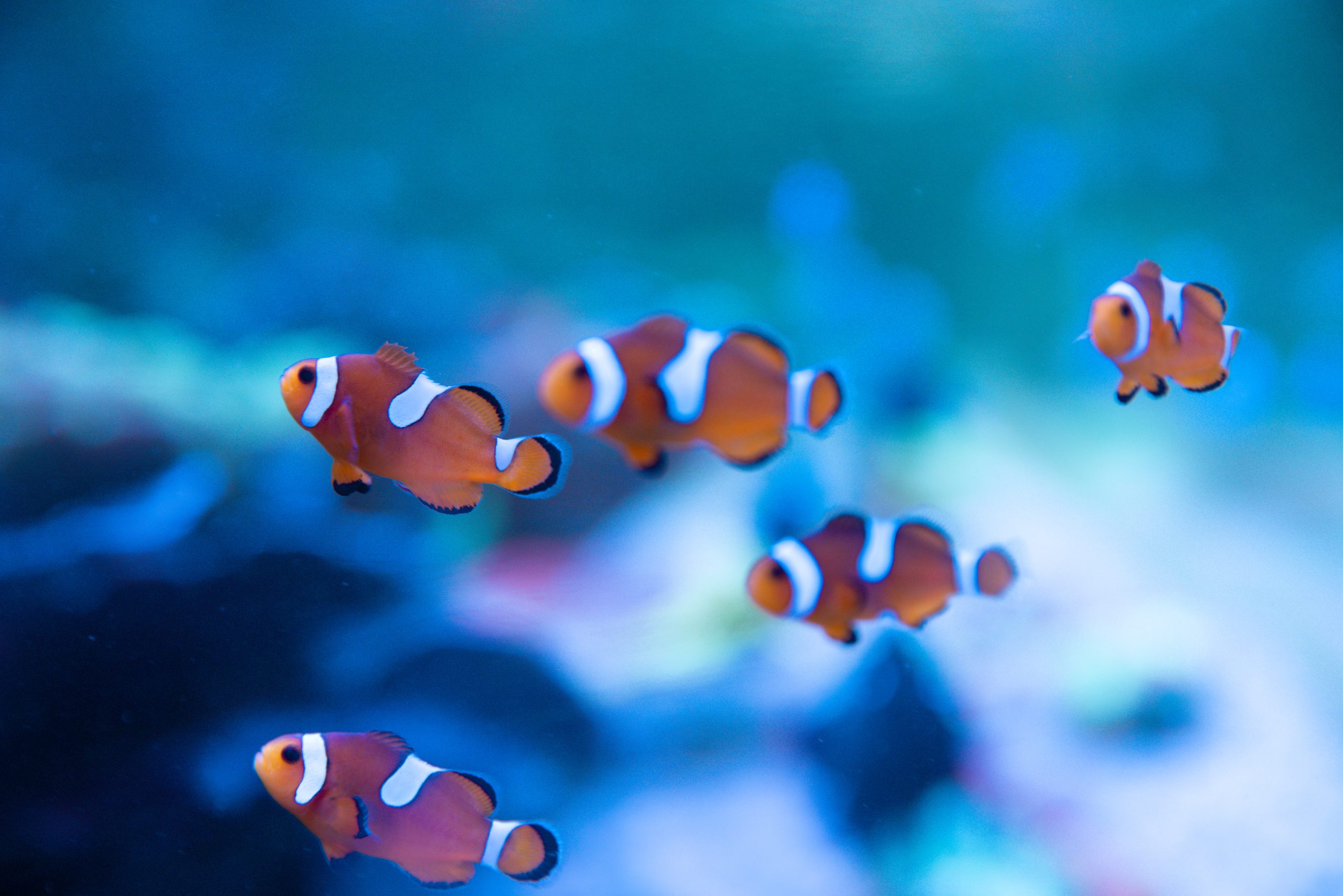
Protecting clownfish in China
In 2023, Banyan Group worked alongside the China Environmental Protection Foundation to support large-scale breeding of endangered clownfish, which play a vital role in helping reef ecosystems flourish.
This partnership also resulted in the establishment of a bait cultivation system for clownfish, the publishing of research reports and the organising of activities that raised awareness about the importance of protecting biodiversity.
Thanks to this initiative, 4,367 juvenile fish were bred by the end of 2023. A total of 2,750 clownfish were also released in Luhuitou Peninsula, Sanya of Hainan province, China.
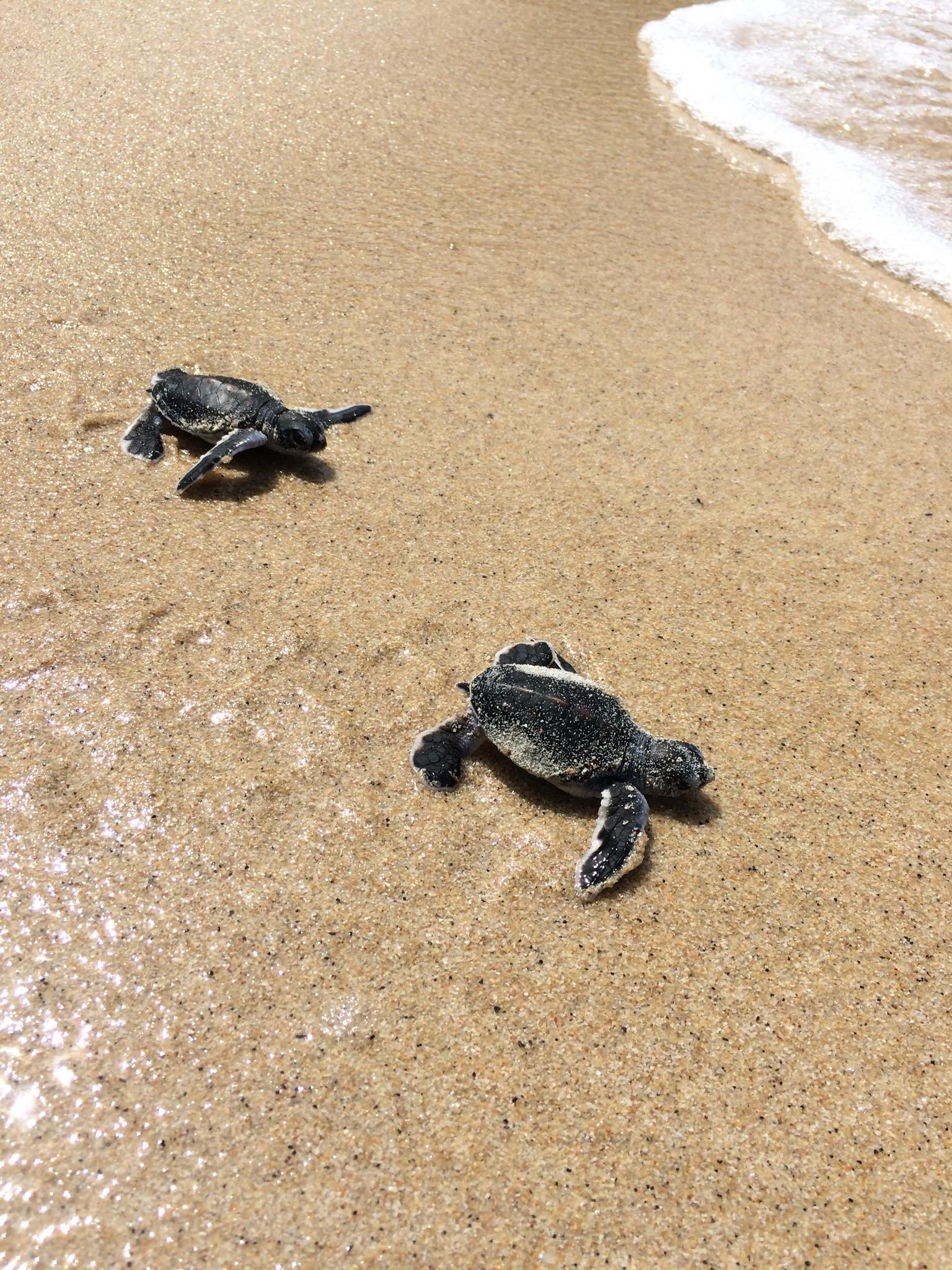
Conserving endangered sea turtles
Each year, Laguna Phuket and Laguna Bintan organise annual turtle conservation events. Releasing hatchlings into the sea helps bolster populations, and contributes to the long-term survival of these endangered species.
This year, Laguna Phuket released 41 green sea turtles into the Andaman Sea with the help of 215 participants and volunteers. Laguna Bintan released 1,803 hatchlings, bringing the total hatchlings released at this property to 7,773 since 2008.
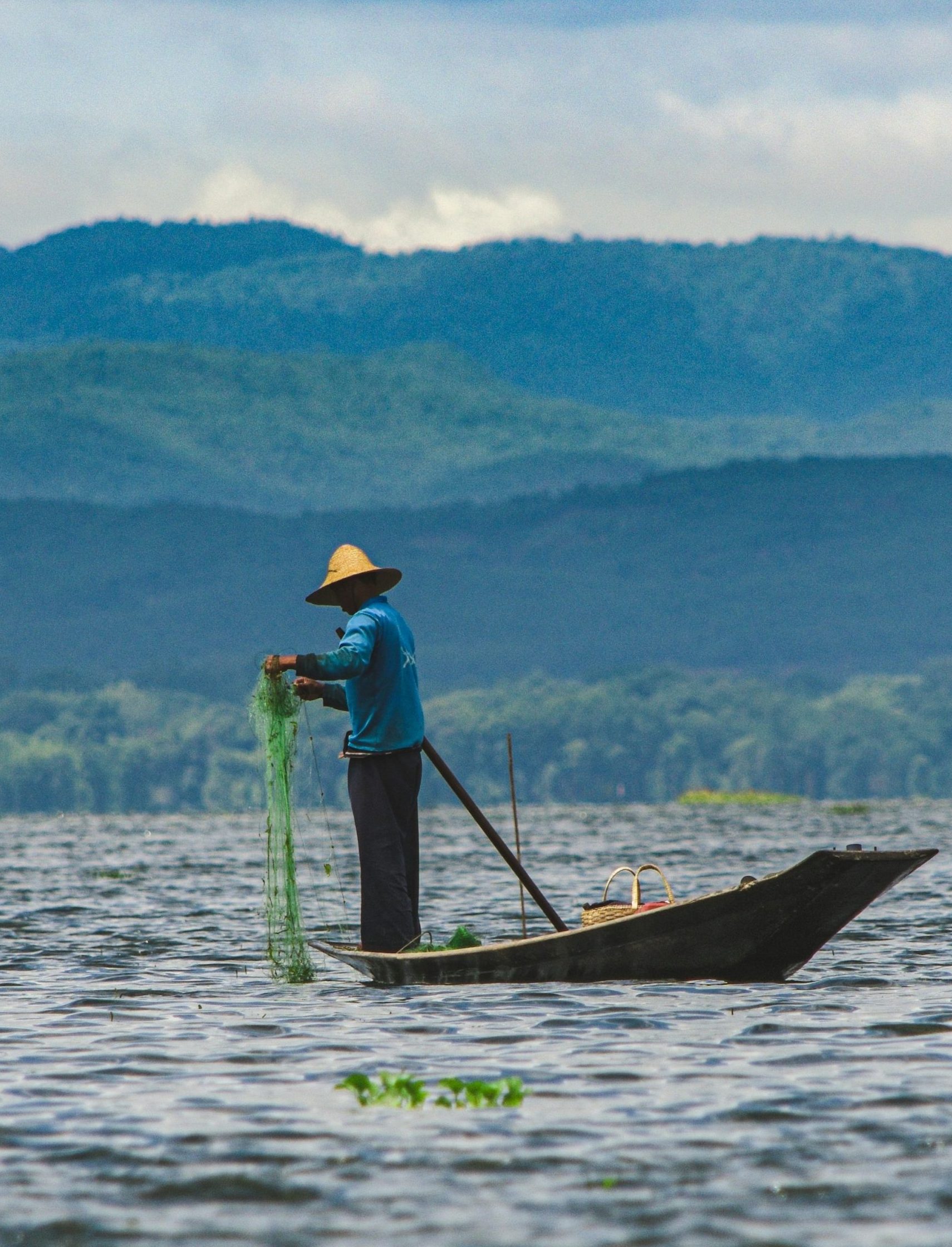
Sustainable food
Sustainable methods of producing crops and raising livestock mitigate environmental impacts, and ensure that the Earth’s limited resources are used as efficiently as possible. So, we procure cage-free eggs and certified-sustainable seafood. The average ratio of cage-free eggs used in our hotels and resorts are:
16%
Southeast Asia
2%
China
2%
Rest of the world (Middle East, Americas, Europe)
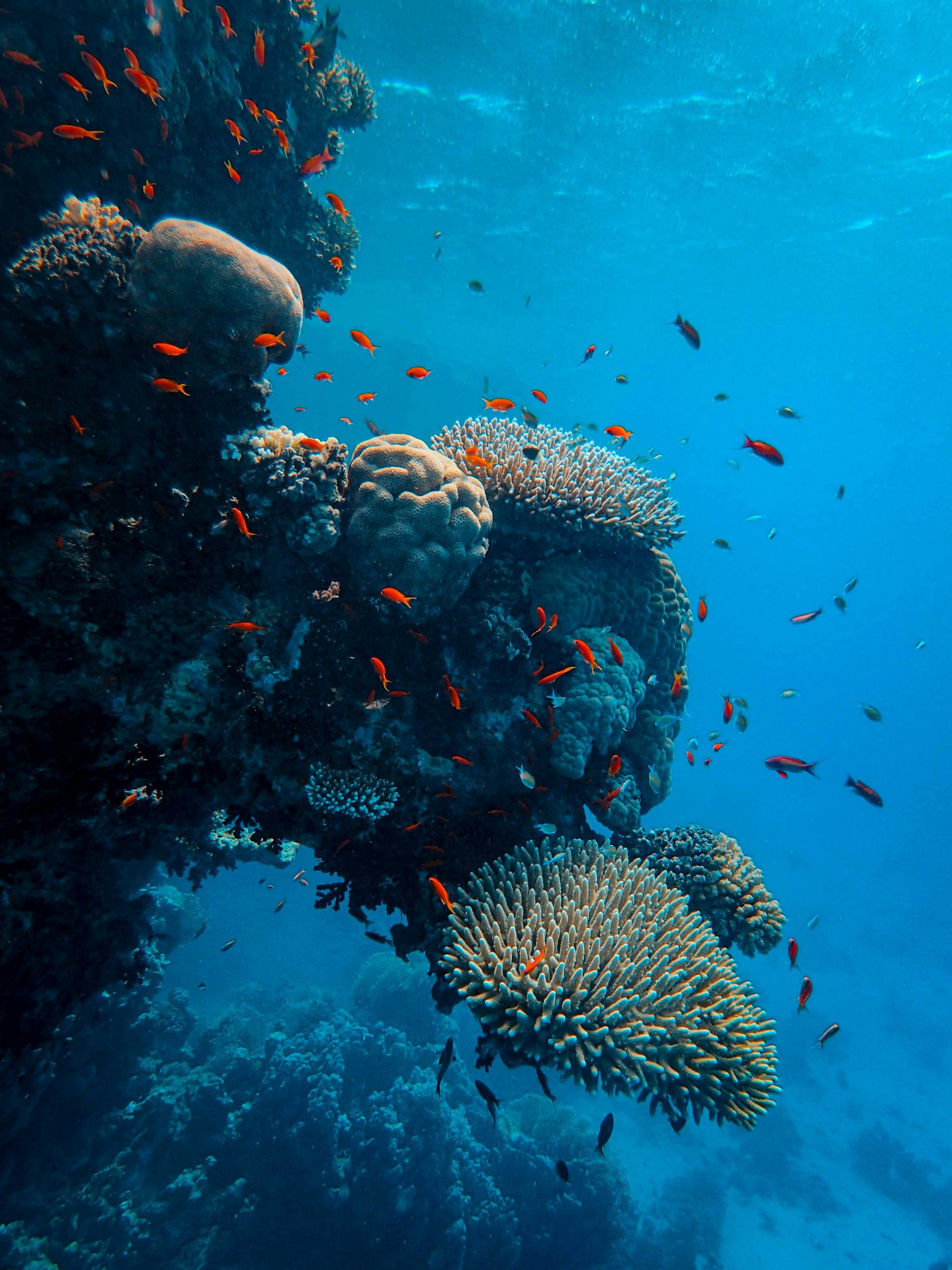
Rewilding landscapes through pocket forests
Laguna Phuket partnered with rewilding specialists, SUGi, to create biodiversity hotspots and corridors that reintroduce native wild species through ‘pocket forests.’ We are already creating several forests on the property, and have a goal of expanding this visionary initiative by identifying 10 more globally in 2024.
Following the Miyawaki method of afforestation, which mimics how forests would naturally recolonise space if humans stepped away, the team selected 84 species of native trees to plant. These trees are naturally occurring in the area and will help improve the site’s responsiveness to climate change. During the first phase, 7,500 saplings were planted with the help of community children and Laguna Phuket Kindergarten.
Miyawaki forests grow ten times faster and are thirty times as dense as alternative reforestation solutions. They sequester sixteen times more carbon per square meter and provide a greater amount of forage for pollinators, a refuge for birds, and a cool home for insects.
Map sensitive habitats and create endangered species lists for each property. This will inform location-specific conservation efforts and create awareness among associates, guests, contractors and the local community.
Pilot rewilding projects to restore natural habitats and increase pollinator biodiversity.
Continue educating and working with properties on their food supply chains, alongside key partners and suppliers.